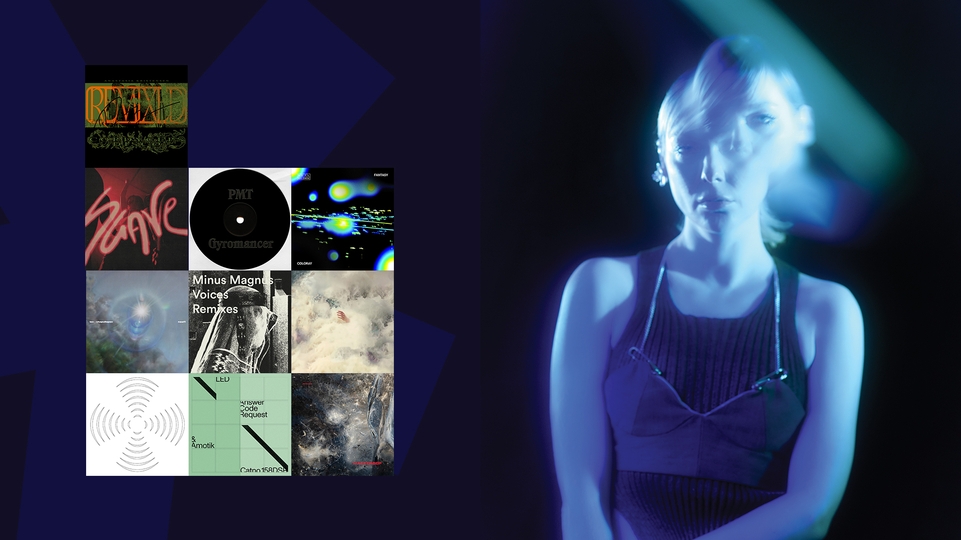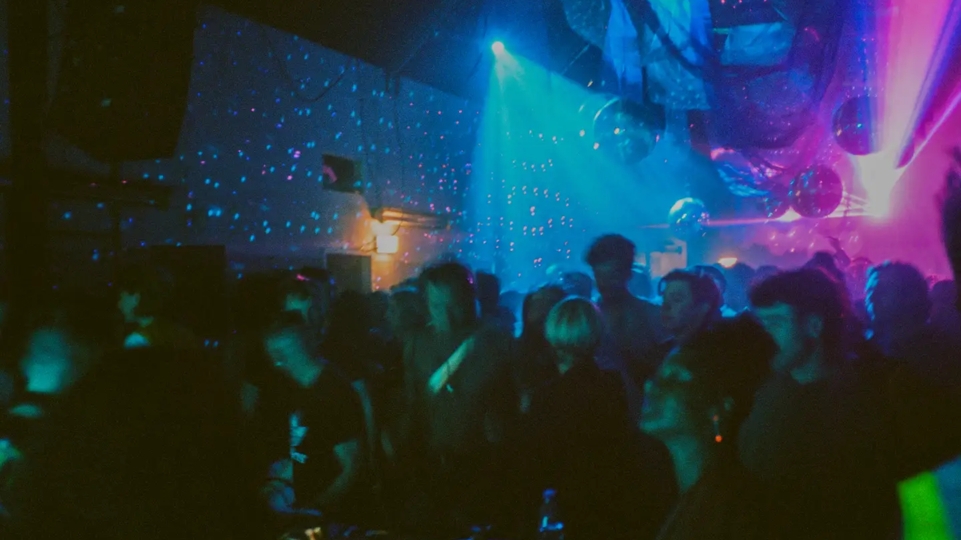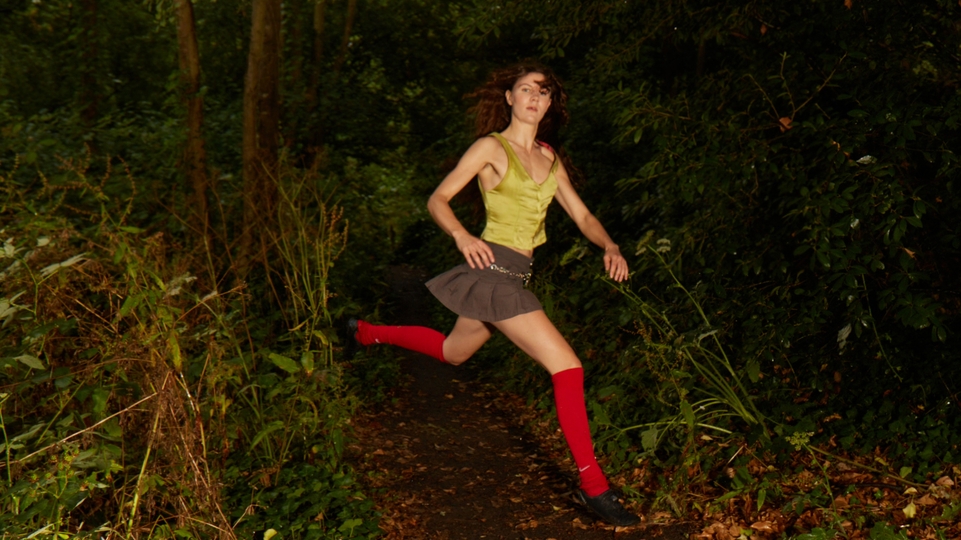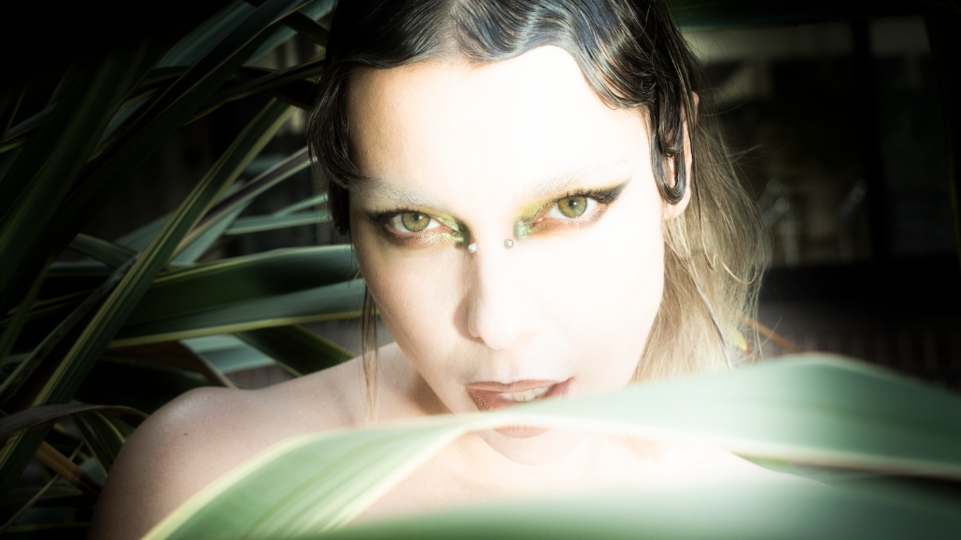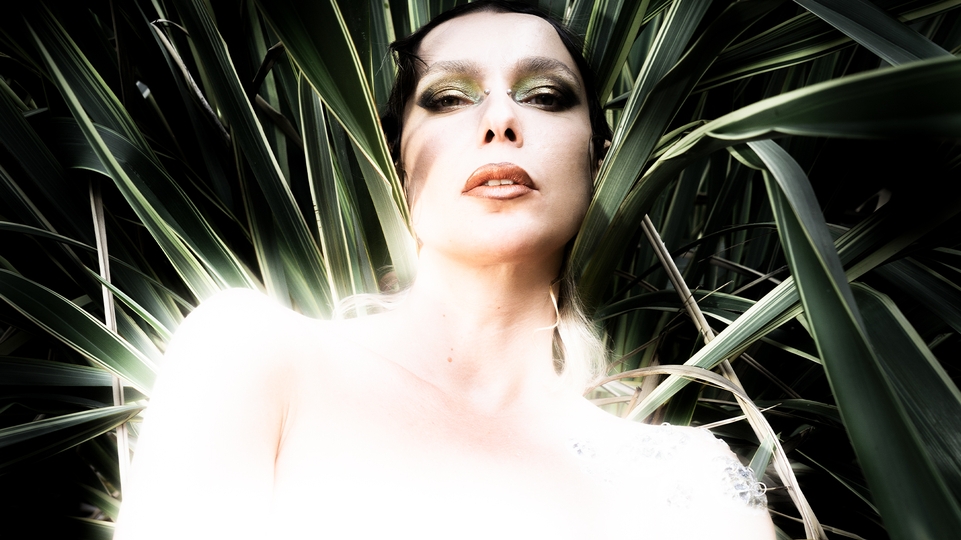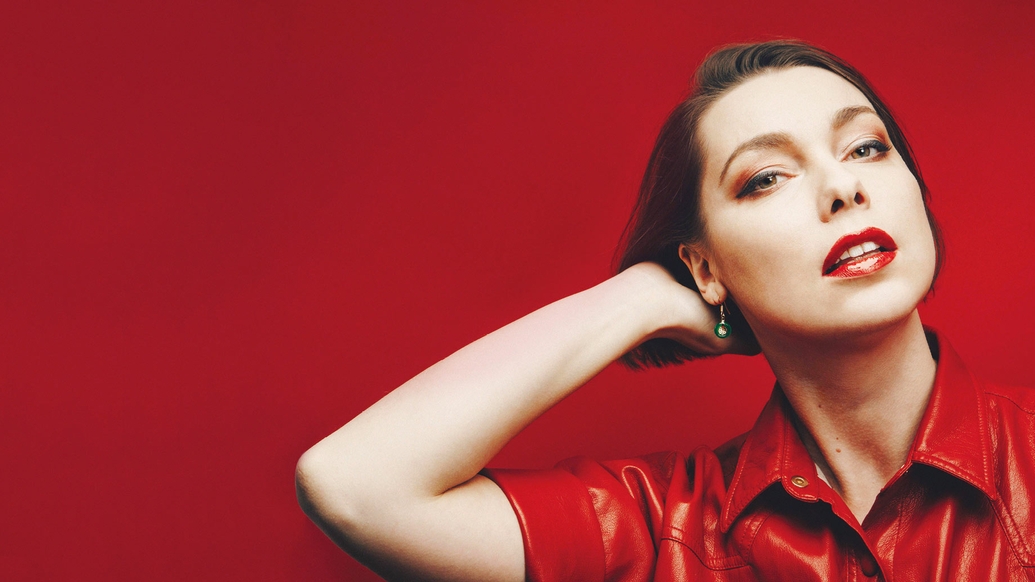
Anastasia Kristensen: Taking the world by storm
Copenhagen-based Anastasia Kristensen has rapidly risen through the ranks in recent years thanks to a natural talent for mixing and a keen selector’s ear that traverses techno, breaks and electro. Her releases too — while small in number — have displayed a clever, quirky sound that’s a refreshing break from the norm. With another festival-packed summer ahead, DJ Mag meets Kristensen in London to find out how her individualism, determination and experiences as an immigrant have helped her overcome hardship and open up to the global community...
In the first week of July last year, Anastasia Kristensen arrived in the Serbian city of Novi Sad for EXIT Festival. The gig was to mark the halfway point in a year of heavy touring, which would eventually top out at over 80 shows in 34 countries; meanwhile, her first full solo release was finally in the works. Then, as she prepared for her opening night set in the enormous mts Dance Arena, she got a phone call with the news that her father had died. A few days had passed already, and the police had been at his apartment in Moscow. Poised to face the biggest crowd of her career, Kristensen had to make a decision on the spot.
2018 was nothing if not dramatic for the 27-year-old DJ and producer from Copenhagen. As she brought her adventurous yet sophisticated taste in techno, breaks and electro to ever larger audiences, she proved herself capable of straddling the delicate line between cult and commercial — just as happy doing marathon sets in sweaty bunkers as playing peak-time slots at huge festivals.
The previous year was hectic enough, taking in over 45 shows across two continents, and her rise has been astonishingly fast — zooming from near obscurity to headliner material in the space of months. Kristensen only started DJing six years ago, but her expert grasp of what makes a dancefloor move and her instinct for pulling unpredictable, Shazam-teasing slammers out of nowhere has fast-tracked her to international recognition.
From a fan’s perspective, Kristensen has been living the dream. Scroll through her Instagram and you’ll see her beaming from under a motorcycle helmet in Hanoi, posing in a gold puffa jacket in Moscow’s Red Square, and dancing in front of fountains in Dubai. She appears to thrive on the road, taking the constant upheaval of touring in her stride. From down here on the dancefloor, it’s easy to take that for granted, but it takes a certain grit to keep your head together when you’re waking up in a different country every few days. And last year, Kristensen didn’t just have the dislocation of touring to deal with. It was a year of proud milestones and unexpected dramas from start to finish — falling in love, buying a flat and quitting her day job, on top of hospitalisation and the long shadow of grief.
“When I go to Moscow I feel very different. There is no doubt it’s a homophobic society. Even at the parties I have to remind them that there should be space for everybody. It’s my duty, as someone who’s resident at a queer party to prevent and educate”
We meet in an unloved patch of north London on a grey Wednesday afternoon, and head straight to the pub. We’re quietly heartened when she orders a cider — it’s not the first time we’ve met, but we wondered if she had since ascended to that level of DJ royalty where anything but herbal tea and green juice are verboten. She’s been in Moscow recently, dealing with her late father’s property. He’d been a huge supporter of her career. “He was constantly curious,” she says with pride. “He watched my Boiler Room set all the time, and showed it to his friends.”
At EXIT Festival, Kristensen had faced a decision: either cancel the set and fly home to Moscow, or somehow fight her way through the biggest show of her life. In the end, a mixture of shock and adrenaline pushed her onto the stage. “I thought that my father would want me to continue the same way as if he was alive, so that was driving me. But I think the fact that I didn’t believe it yet also helped me, because I didn’t fully realise what had happened.”
When the responsibilities of adulthood become real, like the inevitable day when a parent dies, it’s hard enough to keep the plates spinning and simply make it through the day. Nine months later, with life returning to something like normal, Kristensen has proved herself to be a more capable plate-spinner than perhaps she even realised. Instead of taking her foot off the pedal, she’s lined up an even crazier year than the last — with more gigs, somehow, and the recent release of her first solo EP via Arcola, Warp’s young sub-label for edgy dancefloor material.
The four tracks on the ‘Ascetic’ EP speak to different facets of her taste, from goth-dark techno and rabid percussion jams to hardcore flashbacks and skeletal electro. The variety suggests an artist who’s still working herself out, but for a debut it’s strikingly competent. Finally getting her first release out “feels like I have a new badge on my shoulder”, she beams. “Not because of the label — of course, it’s a respectable label and all that — but more that I actually have a full release, and all four tracks are mine. It’s this kind of physical attachment to it.”
DISLOCATION
Based in Copenhagen, where her flat is a handy seven minutes from the airport, Kristensen is frequently described as a Danish DJ, but in fact, she only acquired a Danish passport in 2017. As she tells it, her life has been marked by her experience of dislocation and immigration. “That has a lot to answer for — why I play this music as I do, why things happen for me,” she offers. “I probably have a different understanding of values, because coming from Russia to Denmark was overwhelming.”
Growing up in Moscow, Kristensen’s life was that of a typical middle-class Russian schoolgirl, right down to ballet lessons three times a week. “It was quite normal,” she says. “My mother is a teacher and my father was a freelance artist — he would do lots of graphic work for big publishers. I always had this kind of mixture from my parents — my mum was kind of the logic, she’s a responsible woman, and my father is more artsy. He loved art, and he loved that I seemed to be developing the same interest in it, like ballet, and I liked to go to galleries and music concerts. He had alcohol problems as well, so I always felt like... not that it was dangerous to come home, but I was a bit worried about my father and his state. So I had quite a lot of stress in Moscow as well.”
When she was 14, Kristensen and her mother moved to the flatlands of rural Denmark, not far from the small city of Aalborg. She was a fast learner, especially strong on mathematics and technology subjects, and picked up Danish quickly enough to transfer to a local school within a year. She even got her first music job: packing MP3 players in an electronics factory. But it was a dramatic upheaval for a Russian teenager who liked to stick out from the crowd. “The Danish mentality is very collective oriented,” she explains. In Scandinavian countries, it’s common to hear of an unwritten code of conduct known as ‘Janteloven’ – a disapproving attitude towards ambitious, non-conforming individualism, like an extreme version of what we’d call ‘tall poppy syndrome’. “Especially in rural Denmark, Janteloven was a thing. And I had dreadlocks! I had red hair. I was smart, I was thin, and I had personality — but nobody could really crack it, in a way. Not that I’m trying to sound special — but in that setting I was special. And I think that’s what made me turn my attention to music.”
Her teenage CD rack skewed towards heavy, industrial sounds — Nine Inch Nails, Tool, Limp Bizkit and Russian rock bands — until one weekend in 2009 when a chiptune festival came to town, introducing her to artists like Bit Shifter and Nullsleep. Blip Festival in Aalborg was the “initiation stage”, she remembers. “That’s where I got inspired. It was like, ‘Wow, this is so different — it doesn’t have anything to do with people I know from school’. I got charged by that energy after seeing performers from abroad. And that’s what made me dig more into electro — they were all clearly inspired by that as well.”

ESCAPE
Music became her escape from the pressures of trying to fit in — something which the brainy, dreadlocked chiptune fan from Moscow was never going to manage. Being an immigrant, she says, “you’re constantly having to perform — to prove yourself, to speak the language.” The “mentality clash” between her home countries was obvious from the moment she arrived in Denmark. “Russian culture is very individualistic. It’s very oriented on your particular success, and your family,” she says, explaining that it’s an attitude that was heightened after the collapse of communism. “And this is why you can notice this crazy capitalism blooming in every direction right now — because now you can finally do that.” In Denmark, on the other hand, “you should not stick out. If you succeed, there’s gonna be a big buzz about it — and not in a positive way. That kind of collectivism versus individualism was the first thing that really hit me [in Denmark].”
Having adapted to her new home after more than a decade in Denmark, Kristensen now experiences that peculiar feeling, recognisable to many emigrants, of being a foreigner in her homeland. Russian attitudes can be shockingly divergent. Clubs, for instance, may seem similar enough on the surface, but the techno scene isn’t immune from the government’s fiercely anti-gay agenda.
“When I go to Moscow I feel very different. There is no doubt it’s a homophobic society. Even at the parties I have to remind them that there should be space for everybody. It’s my duty, as someone who’s resident at a queer party” — Kristensen often plays at Copenhagen queer night Mainstream — “to prevent and educate, or at least make a point about something that’s wrong. If you claim that you’re part of this community then there’s a certain checklist — you can’t be homophobic. But unfortunately it does exist still, and it’s a problem for the entire country and society.”
Last year, however, Kristensen played Present Perfect festival in St. Petersburg and was struck by the organisers’ attempts to create a welcome environment for gay clubbers. “We need to count every effort made. In Russia it’s illegal to make a safe space. If you promote a party with gays and lesbians, you can go to jail for it. So when Western critics come and attack Russian festivals, they should remember how hard it is for anybody to operate in that framework. So of course it’s bad, but from what I’ve seen, it’s getting better. I’m a bit optimistic.”
STUDYING
After school, Kristensen’s technical smarts secured her a place at the University of Copenhagen studying computer science for health care. Halfway through the course, she spent a term studying abroad at McMaster University in Hamilton, Ontario — incidentally, one of Canada’s under-the-radar techno hotspots, home of Junior Boys and industrial duo Orphx. Fresh from a break-up and ready to try something new, her semester in Canada became the germ of her DJ career. She’d been a keen collector for years — French pop, Detroit electro, UK bleep & bass — but hadn’t thought much about hearing it in a club context.
“I knew a lot about music but not about going out. What do you do when you go out? I was more of a concert person for a very long time. I never liked to go out with my university pals, because they’d go out and listen to terrible EDM or pop edits — then I went home and listened to Underground Resistance and the night was sorted for me,” she laughs. One night in Hamilton, she asked a stranger for a lighter (Kristensen is an enthusiastic smoker) and struck up a friendship. The stranger was a minimal techno DJ, and with typical Canadian hospitality he invited her over for Thanksgiving. Seeing he had decks set up, Kristensen asked to be shown the basics. “A bulb lit up in my head — oh, that’s all the music I know, and now I can actually mix it.”
Her first gig was at an art show in Copenhagen a few months later. “I was so awkward, and I was on a stage so people actually looked at me. I wasn’t mixing well and I had no clue. I remember I played Kraftwerk and somebody recognised it and that was cool. Like, alright, this is what you do — you try to create a vibe for people who are here.” It didn’t take long for her to get good — really good. She took up a residency at Culture Box in Copenhagen, starting out in the third room — the cocktail bar, basically, but “an amazing practice space. I’m extremely thankful that they just let me try, without any judgement.” These days she’s a resident at the club, playing three or four times a year and offering advice on bookings.
INTERNATIONAL
During the week, Kristensen was putting her degree to use in a government IT job, but as the international bookings started coming in, she was spending less time at her desk. Did her parents wonder what she was up to, risking her respectable career? “I think they were just surprised,” she laughs, “like, ‘What’s going on? Are you a drug abuser or something?’ That was mostly their concern. And I was like, ‘Mum, if I was using drugs I would not be able to tour like I do and then go to work on Tuesday’.”
By 2017, music was taking over her life, with gigs every weekend across Europe and North America. Copenhagen DJs often congregate in crews, like CUP and Untitled Tricks — that typical Danish collectivism at work — but Kristensen is a solo operator, and her relentless touring schedule has placed her at a slight remove from the city’s blooming party scene. Find yourself down the front at one of her sets and it’s immediately clear why she’s in demand around the world. Her bold, brawny style feels accessible but never predictable; fans of the UK hardcore continuum can tune into picks like dBridge and Soundbwoy Killah as she slams crusty breaks into saucer-eyed rave reveries, while techno purists can admire the way she pairs eyes-down fare from Speedy J and Mika Vainio with electro and wave obscurities.
Increasingly she’s found herself on bills with Nina Kraviz, another Russian DJ with a taste for leftfield techno, and Detroit originators like Jeff Mills and electro hero DJ Stingray. And yes, she has seen him without the balaclava. “I remember at my first Boiler Room in Berlin, and this guy — he’s very tall — comes and grabs me out of the crowd and says, ‘This was very good, let’s go to the bar!” That was amazing,” she chuckles. “We played together at a boat party too, and Stingray was pouring out vodka.”
<?php echo "
"; ?>
“I learned that my dad had died because I asked someone I knew in Moscow to go and check on the apartment. His neighbour said that he had been taken away already by the cops and the authorities. I couldn’t believe it. I was in some kind of denial for a very long time. We still don’t know the cause of death”
The milestones began to flash by: her first night at Fabric, where she proudly wore the “rockstar” wristband given out to all club debutantes; her first week in the “festival wonderland” of Dimensions, with its fortress and flotillas; her first tour of Asia, spending a whole month visiting eight countries. Astonishingly, until last December she was still clocking into work every Tuesday. She looks surprised herself.
“I think I was lying to myself that it’s possible to be this robo-machine. I thought you really could, and it stretched on for some time. But when you can barely continue after the weekend because there was so much travel, and you have to be clear in your head on Tuesday and all you can think about is, ‘That was a fun gig’, or, ‘I’m looking forward to going there’ — there was just so much excitement I couldn’t hide,” she says, looking genuinely elated. “I think the breaking point was when the Asia tour was shaping up. I realised that I can’t be both places physically and mentally. I have to be honest with one thing now.”
DIFFICULTIES
In May last year she travelled to Detroit for the first time to play at Movement festival — a dream booking for the long-time techno collector, who made a beeline for the rave bunker of Submerge, headquarters of Underground Resistance. Then, a few days after playing her set at Tangent Gallery, alongside Deepchord and Headless Horseman, Kristensen’s long-running streak of luck simply ran out. On the flight home to Copenhagen, she realised she was having difficulties breathing. Two days later, sitting at her desk and still struggling, she finally took herself to hospital — and didn’t get out for 10 days. “All that time, it was a collapsed lung. You know, when you have breathing trouble you don’t necessarily think of a collapsed lung, especially as a young person! But at some point I couldn’t even speak anymore because my second lung wasn’t coping well.”
The treatment was more complex than expected, forcing her to cancel her much-anticipated OFFSónar debut. “I was really scared,” she admits — but not of being ill. “You’re in hospital for 10 days and you think your entire career has gone down!” When a DJ ends up in hospital, there’s a tendency to think they’re a casualty of their own rock & roll behaviour — so did she just overdo it in Detroit? “No, we don’t know what happened,” she says, offering two options: either she was laughing too hard at the No Way Back party, or it’s something to do with being tall. “This is the only answer I get from the doctors,” she shrugs. “It’s common in tall people!”
Just a few weeks later, in Serbia, Kristensen discovered that her father had died. He had been due to meet her new boyfriend, the Edinburgh-based DJ Telfort, for the first time later that month while the couple were on tour in Russia. “I learned that he had died because I asked someone I knew in Moscow to go and check on the apartment. His neighbour said that he had been taken away already by the cops and the authorities. I couldn’t believe it. I was in some kind of denial for a very long time. We still don’t know the cause of death. It was not found. We had a big investigation after that.”
At the festival, Kristensen made the decision to get on stage. “My agent was there with me, supporting me. She was like, ‘Are you sure you can do this?’ And I did it. I just went and did it, and I dedicated my set to my father. I was cheering his life with the crowd — just in my thoughts of course. We didn’t make a big deal, nobody announced it. The only thing I did differently was that I refused all interviews, because I couldn’t fake being excited. So I was standing there with a poker face.”
Her summer continued as already planned, each weekend at a different festival, punctuated by frequent trips to Russia to deal with funeral arrangements. “It felt really weird, especially when I was alone. If I wasn’t surrounded by people, that was when the freakout started. You start to look back on your childhood, why did I not call him more... this terrible guilt feeling. I did go to a psychologist for it, and she gave me some tips on how to integrate the fact of someone’s death in your life. I think I’ve now accepted it. But it’s super-weird to lose your parent. We weren’t that close, but we talked every second week. It’s shit, especially when you don’t expect it.”
NEW ERA
The ‘Ascetic’ EP, released the week after her return from Asia, marks the beginning of a new era for Kristensen, both personally and professionally, as she settles into music as a full-time occupation. Led by the glinting bells of the title track, the EP makes good on the promise of earlier tracks and remixes, like her muscular rework of Special Request’s ‘Tiresias’; between the bone-dry crunch of ‘LXR Jam’ and the haunted hardcore of ‘Ascetic (In Breaks)’, she’s sketched out plenty of options for her next move. “As someone who cares about quality a lot, I feel like there’s some good material on [the EP]. I’m looking forward to deciding what direction it can go — is it going to be more clubby, or more deconstructed? This is why this release has something for everybody, because I notice how people respond to it — most techno heads like the A1, then the UK market is all about the breaks tracks and the minimalistic one with only one instrument, ‘LXR Jam’. And I kind of knew that,” she says, like a canny marketer. “But I like both worlds. I want to trick my listener — I want them to put me in a box and then they have to take me out of that box.”
At home, her studio set-up is minimalist: just Ableton, her LXR digital drum machine, and a virtual stack of plugins. She’s also discovered, during sound testing, that her new flat has a concrete ceiling — every bedroom producer’s dream. “But I think I’m done discovering all the possibilities that a computer can do, or my drum synth. Right now — like from today on,” she laughs, “I’m going in-depth with sound. I’m simply focusing more on the sound’s nature. I’m gonna make one riff and I’m gonna fuck around with this riff forever. I think I’m gonna learn more about velocity.”
In her own productions, Kristensen tries to create a certain character — a mystique, even. It’s the same ineffable quality she’s searching for when digging for new records. “I used to be way faster with my digging, like, ‘Oh, this is great’,” she says, clicking her fingers, “but now I try to give it deeper thought. It has to have some character and personality — or a face, you could call it. Unfortunately there are many productions that are too similar, that don’t leave any footprint after the listening session. But I’m actually quite amazed how much quality music is coming out right now, especially by people who have just started out or are just being discovered,” she says, listing Lisbon’s breakout star Violet, Melbourne DJ Roza Terenzi and AIROD from Paris as current favourites.

Techno nerds famously love to obsess over their favourite DJs’ approach to track organisation, so we ask Kristensen about her own Rekordbox filing system, which turns out to be the exact opposite of Avalon Emerson’s precisely organised crates. “I have a very interesting technique in the sense that I clear my playlists completely, archive them and start again,” she says, more like a vinyl DJ with a bag of records. “You really need to clear your mind sometimes. Every shelf needs to be cleaned, and so does your mind. I know some of my colleagues have an insane amount of playlists, and they actually forget them with time. I think it’s good to outsource it, and with the tracks you really love, you’ll remember them anyway! It’s a natural filtration process.”
COMMUNITY
Our pint glasses are empty and the conversation has reached the present day. After the turbulence of the last 18 months, Kristensen now seems to have all her ducks in a row. Coping with illness, death and grief seem only to have sharpened her instincts, first honed as a young girl in a new and foreign country, to work hard and keep proving herself. Now that she’s older and wiser, are there parts of her personality that have finally become Danish? She laughs knowingly. “Thinking a bit more about other people. This is definitely something I’ve seen from my peers in Denmark. I started caring more about community, and because I travel so much, community has become a sort of international phenomenon. When I was in Hong Kong recently, I liked the community so much that I went back to Hong Kong and we threw a little event together — we cooked Chinese hot pot, I played a special ‘80s set. And I felt like I’m part of a community but I don’t even live there.
“In the scene I operate in, the community is large and international, and I feel like I can fit in quite quickly with what I do. So [it’s about] being open to communities and understanding each other, and other people’s pains and struggles, especially if they’re immigrants. I’ve learned that from Denmark and I’m kind of practising it. It gives me a sense of hope for humanity, that people can unite so much.”
Outside, she lights a cigarette that somehow seems hard-earned. Before her cab arrives, we ask her if she finally feels, well... sorted? There are fewer things in her life now, she agrees — fewer hassles, fewer obligations. “It means I can embrace what I have left. I kind of ignored that philosophy for a long time. I’m also prepared for developing new sorts of anxieties,” she laughs. “But I’m excited. What direction do you choose for yourself — do you want to focus on the new anxieties, or do you want to focus on the new opportunities? People really underestimate the shifting of focus to good shit. It’s like ‘fake it ‘til you make it’ — it’s a famous pep talk, but I really love this phrase! It helps me to move forward with the decisions I’ve made. I really think if you focus on new stuff, all your constant worries take second place.”

